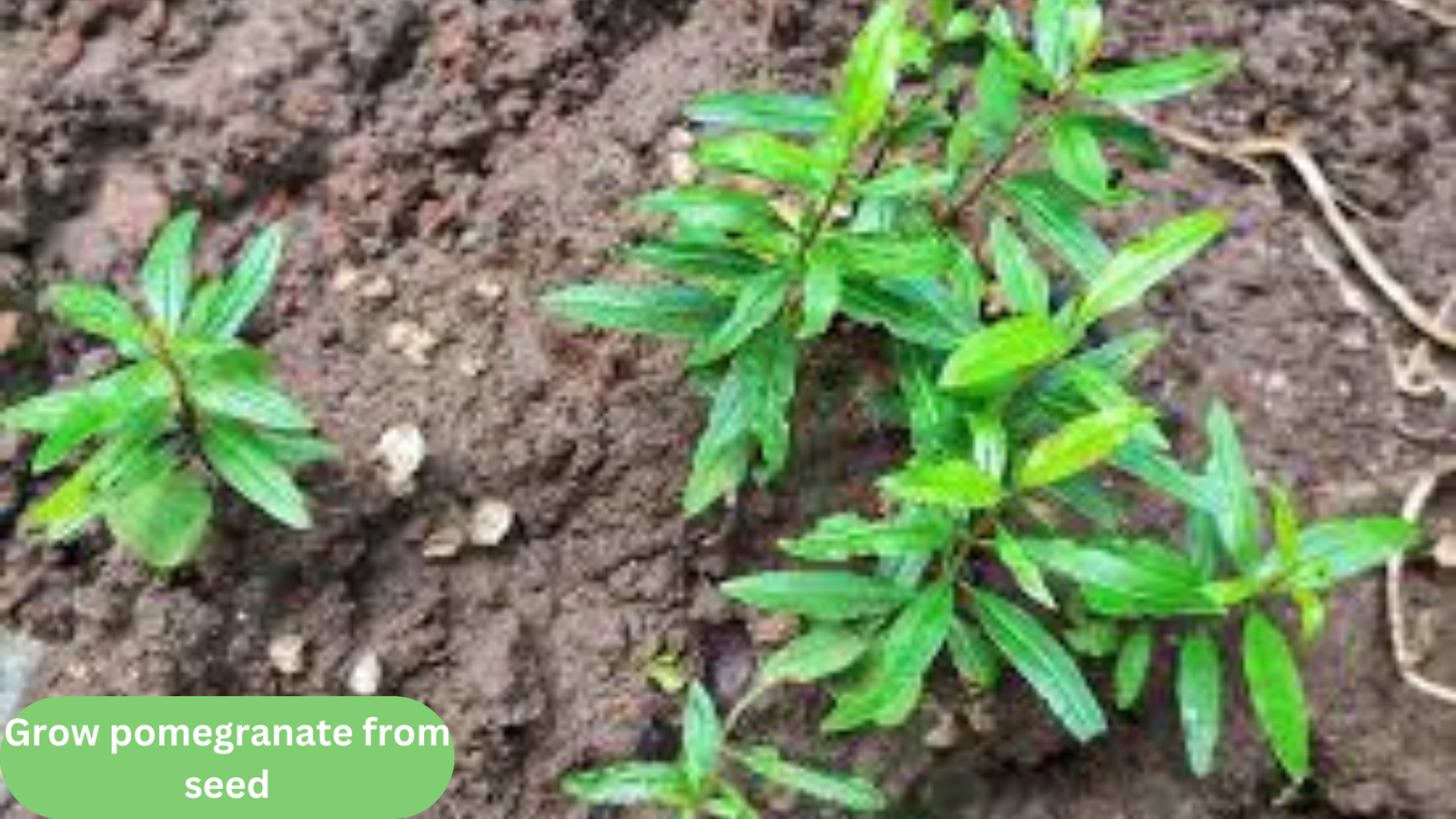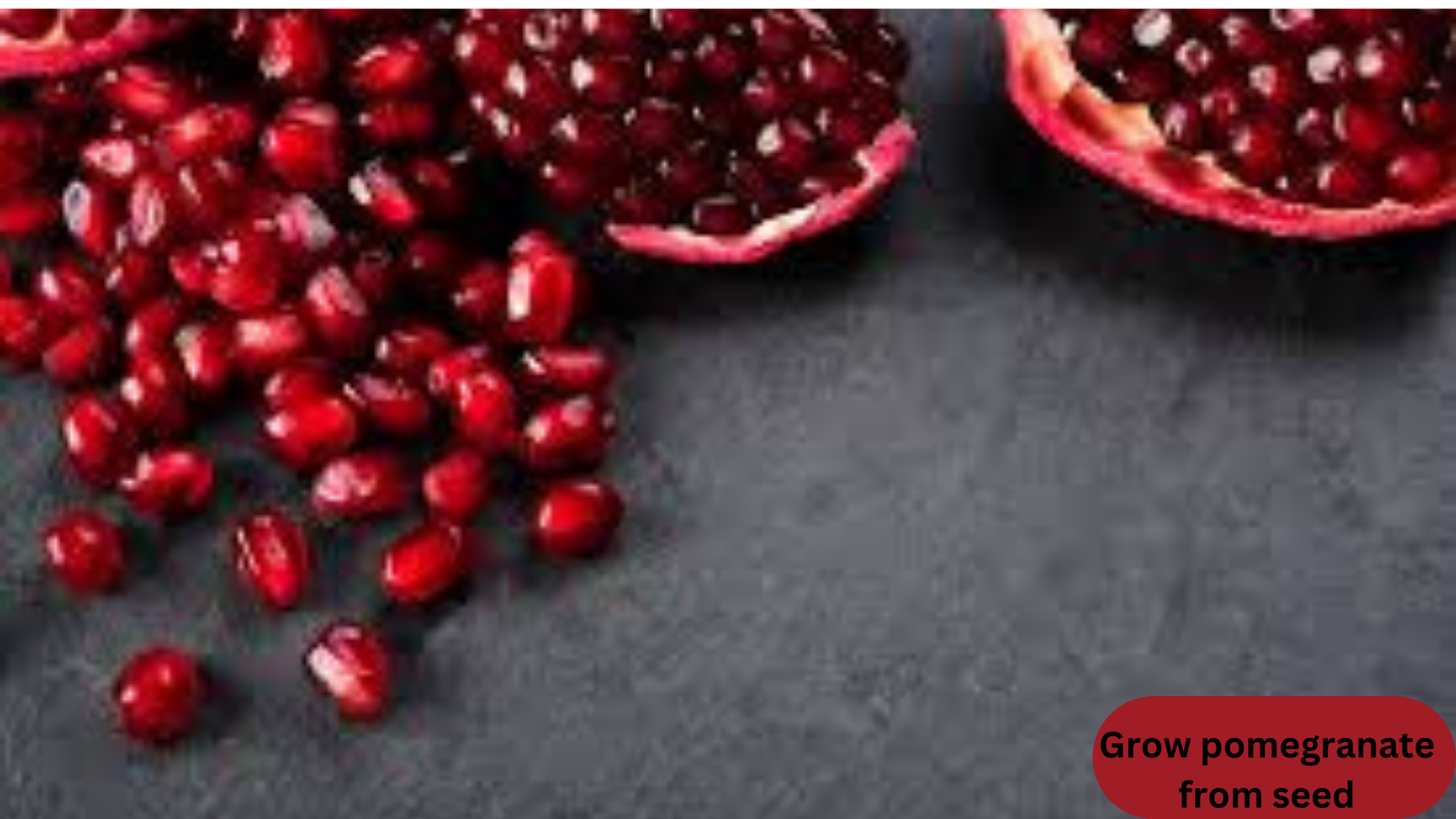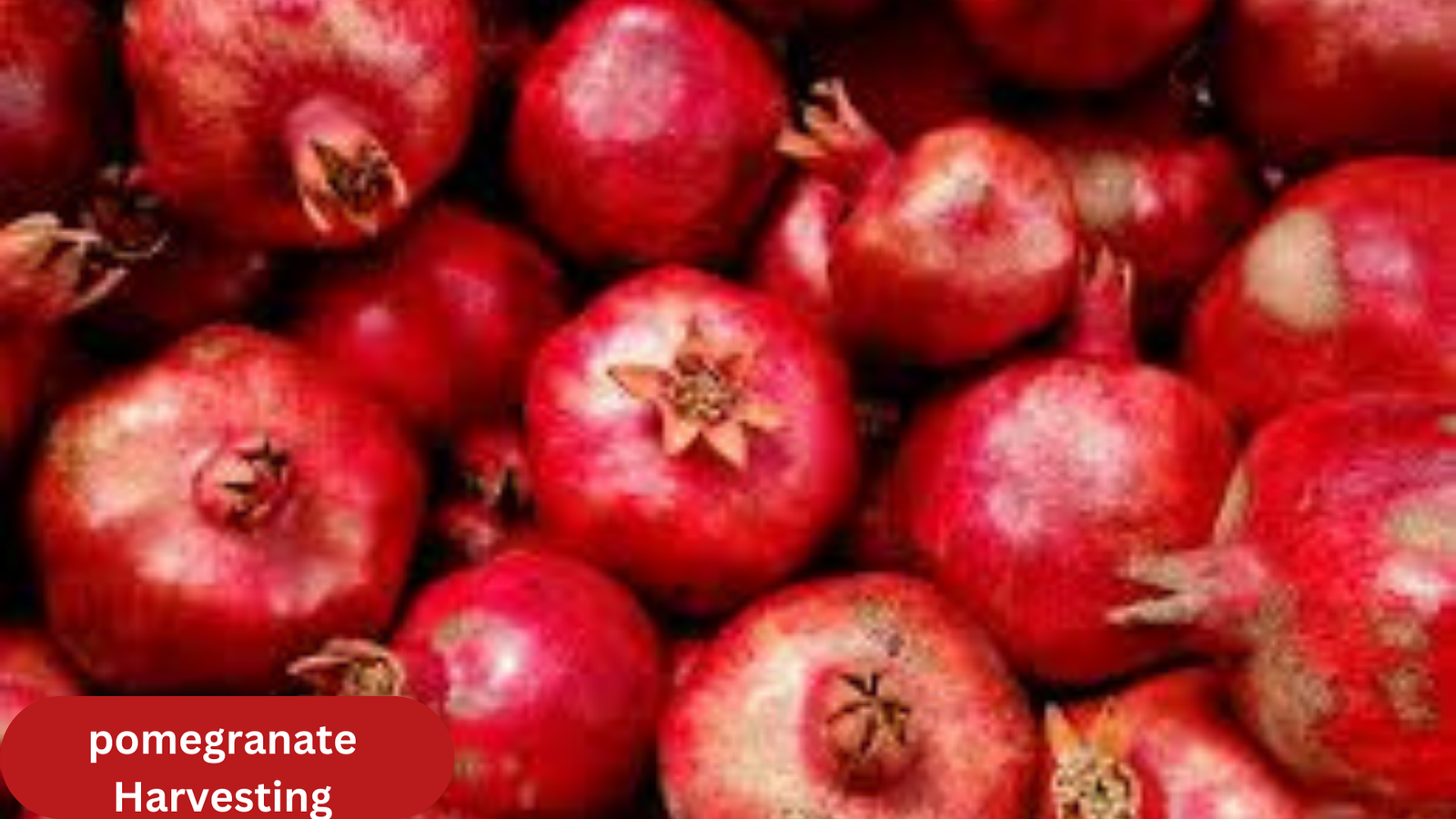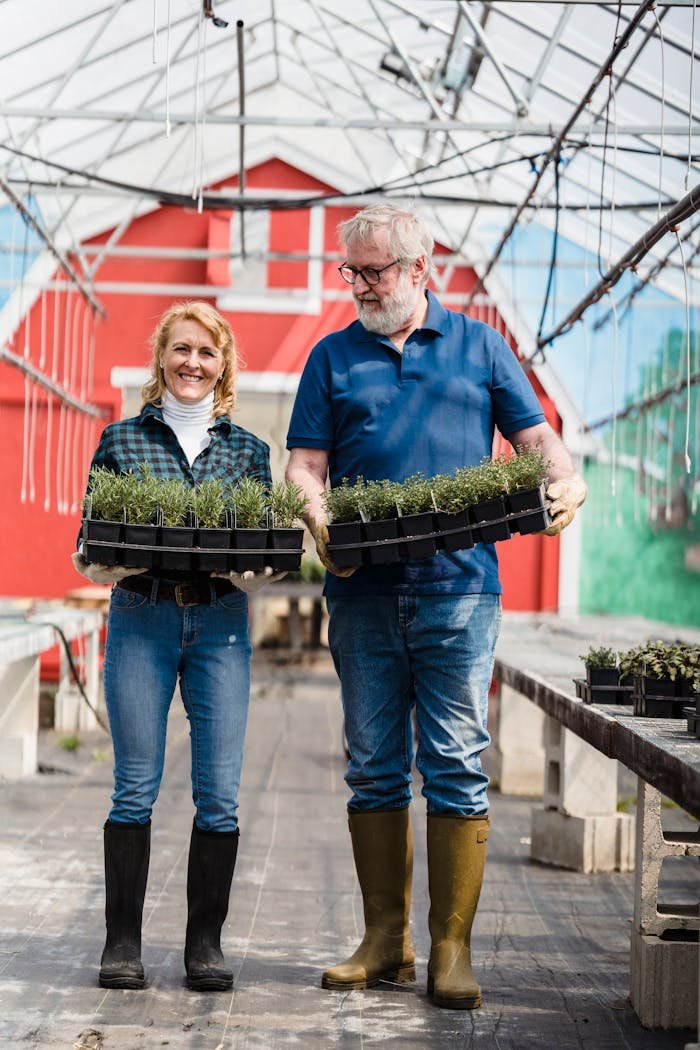Pomegranates, with their colorful purple fruit and limitless health blessings, have come to be a favorite fruit for many. Whether you are inquisitive about cultivating them for his or her scrumptious taste, decorative fee, or fitness advantages, growing pomegranates from seed may be a profitable hobby. While it may appear difficult for novices, with the proper information and endurance, you could efficiently grow pomegranate timber from seed. How to grow pomegranate from seed is very easy way.
Why Grow Pomegranates from Seed?
Growing pomegranates from seed offers a few unique blessings. First, it lets you create a tree that’s uniquely yours, as seeds can range slightly from figure flowers, which may result in new fruit characteristics. Secondly, it’s a price-powerful way to start your pomegranate orchard. Pomegranate seeds are cheaper and clean to source, making them a perfect preference for amateur gardeners.

Step-through-Step Guide to Growing Pomegranate from Seed
Collecting Seeds To start, you need clean pomegranate seeds. Before deseeding a pomegranate, choose a good seed. First of all, take a ripe pomegranate and cut it in half and then carefully separate the seeds from the pomegranate. Rinse the seeds thoroughly under water. Soak the pomegranate seeds in warm water for 24 hours. This helps melt the outer seed coat and will increase the probability of germination. After soaking, drain and let the seeds dry for multiple hours.

Stratification (Optional) For first-rate consequences, cold-stratify the seeds. This technique simulates iciness and helps smash the seed’s dormancy. Place the soaked seeds in a humid paper towel, positioned them in a plastic bag, and keep them within the fridge for 30 days. While this step is non-compulsory, it is able to enhance germination costs, specifically in cooler climates.
Planting the Seeds After stratification, it is time to plant. Fill a seed tray or small pots with nicely-draining potting mix. Plant the seeds about ½ inch deep and cover them gently with soil. Water gently to moisten the soil, however keep away from overwatering. A light misting once or twice an afternoon is generally enough.
Providing the Right Environment
Pomegranate seeds want warm temperatures to germinate, preferably between 70-eighty five° F (21-29°C). Place the pots in a heat, sunny area. If you’re growing interior, do not forget the use of a grow mild to provide adequate mild and warmth. Germination can take anywhere from 2 to six weeks, so be patient. How to grow pomegranate from seed is very simple method.
Transplanting Seedlings
Once the seedlings have grown sturdy enough, with at least some sets of leaves, they may be transplanted into larger pots or without delay into the floor. Ensure the soil is well-draining, as pomegranates no longer thrive in waterlogged conditions. Choose a sunny spot for the transplant, as those woods need lots of daylight to broaden.
Caring for the Young Pomegranate Tree
Young pomegranate wood requires ordinary watering, however make certain the soil isn’t overly wet. Allow the soil to dry out a little between watering to avoid root rot. Fertilize the tree with a balanced fertilizer every couple of months, specially all through the growing season.
Patience: Pomegranates Take Time Growing pomegranates from seed is an extended-term dedication. You might not see fruit for two-3 years, as most pomegranate bushes grown from seed take time to mature. However, the reward is really worth the wait. When your tree eventually produces fruit, you’ll recognize which you’ve nurtured it from the very beginning.
Common Challenges and How to Overcome Them
Slow Germination: Sometimes pomegranate seeds may take a little longer to germinate, but if you grow the seeds in the sun, they will begin to germinate quickly because they grow quickly in light, so you need to be patient in places like If sunlight does not reach, use a lot of develop lights.
Poor Drainage: Ensure that your pots or planting areas have notable drainage. Pomegranates dislike waterlogged soil, and poor drainage can cause root rot or fungal problems.
Pests and Disease: Like most fruit trees, pomegranates are vulnerable to pests. Regularly take a look at your plant life for signs of pests like aphids or scale insects, and treat them with herbal or chemical insecticides as important.
Why Growing Pomegranates is Worth the Effort
Aside from the classy and fitness advantages, developing pomegranates also can be a fun and profitable revel in. As the timber mature, you’ll be capable of harvest your very personal sparkling fruit, full of antioxidants and other health blessings. Whether eaten sparkling, juiced, or utilized in cooking, homegrown pomegranates have an awesome, flavorful taste that you gained locate in shop-sold varieties.
Conclusion
Growing pomegranates from seed may additionally appear like a sluggish and tedious process, however it’s certainly a profitable one. When you grow pomegranates from seed, it can take several years to bear fruit, so you have to be patient and watch your pomegranate tree grow and flourish if you want a good harvest of pomegranates. So make a proper strategy for it and control the conditions like sunlight easily reach, give timely food and water, you can experience pomegranates at home by our method. Pomegranates have many benefits. Eating pomegranates keeps you fit.

Pomegranates are hardy plant life once they’re hooked up, and with the proper environment, they can develop in diverse climates, making them suitable for novice and seasoned gardeners. So, whether or not you’re seeking to add a lovely tree to your garden otherwise you’re in it for the lengthy haul of homegrown fruit. Growing pomegranates from seed is an investment, a good way to pay off inside the form of each fruit and delight. So, what are you anticipating? Go beforehand and begin your pomegranate-developing journey nowadays!
FAQs
1. How long does it take for pomegranate seeds to germinate?
Pomegranate seeds can take anywhere from 2 to 6 weeks to germinate, relying on the temperature, the care they acquire, and whether or not they’ve gone through bloodless-stratification.
2.How do I regularly water my pomegranate tree?
Water your pomegranate tree regularly, however permit the soil to dry out barely among waterings. During the developing season, deep watering as soon as in step with week is common enough. In wintry weather, you could lessen watering as the tree’s increase slows.



